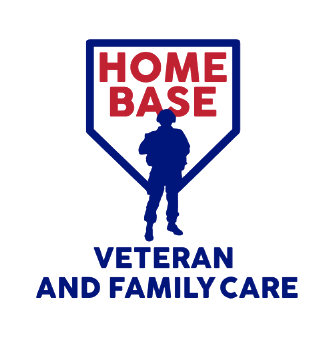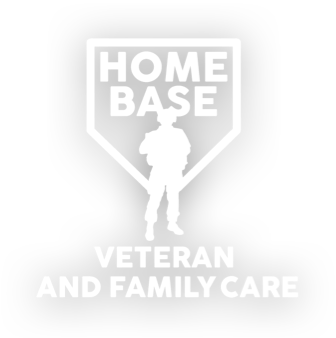Mental Health: Maintaining Recovery Goals During the Holidays
If you are currently reducing, abstaining from, or trying to maintain a specific goal related to substance/alcohol use, the holidays can be a particularly challenging time of year. The holidays can stir up an overwhelming amount of emotions, both positive and negative, that might bring on extra stress and triggers. Furthermore, friends and family might view the holidays as a time to have gatherings where alcohol or other substances are often present. Thus, supporting your recovery becomes particularly important around this time of year. Here is a list of tools, tips, and strategies that might help you maintain your recovery goals during the holiday season.
- Make a plan that aligns with your current recovery goals. If your goal is to abstain from use, perhaps bring another sober friend or family member to any event you attend to help keep you on track. Plan for variables such as transportation, that will allow you to attend and depart the event as needed for your comfort.
- Put yourself and your recovery goals first. If you know that attending a family gathering around the holidays can be triggering for you, maybe sit this one out and spend the holidays with friends instead. There is no need to push yourself through triggering situations; respect yourself and set boundaries for risky situations.
- Avoid isolation where you can. While it is important to set boundaries and allow yourself the permission not to attend social events that might hinder your recovery goals, it is also crucial to still reach out to those that love and support you around the holidays. This could mean attending a self-help group such as AA or NA instead of attending the family Thanksgiving dinner. This could be calling your friends rather than stopping by their party or dropping in via FaceTime for a few minutes. This could even look like volunteering within your local community.
- Enjoy a mocktail or non-alcoholic beer. If you are looking to cut-back, abstain, or maintain your alcohol use, mocktails and non-alcoholic beer can be a great option for the holidays. There are lots of great mocktail recipes online and non-alcoholic beer is sold at most stores. If you are concerned about going to a liquor store these purchases can be made online.
- Remember that relapse is not a failure. Even if you relapse this holiday season, whether you accidentally drink a cocktail that has liquor in it or you completely miss your recovery goals, it is not the end of the world. Relapse is a common part of substance use recovery, and it does not mean all your progress is lost. Remember to be kind to yourself and acknowledge that substance use disorders are a chronic health condition that you will most likely work on your entire life. The holidays can be a great time to recalibrate what you need, seek additional and new treatments, so perhaps a relapse can be a catalyst to try a new form of care.
Keep the SAMHSA’s National Helpline Number handy should you need additional support. 1-800-662-HELP (4357)
Supporting Your Loved Ones Recovery Goals During the Holidays
Having a friend or family member who is reducing, abstaining from, or trying to maintain a specific goal related to substance/alcohol use can be stressful. If you have a loved one that is working on their recovery, the holidays might be a particularly challenging time. Deciding whether to have substances at gatherings, if you should invite a friend or family member to events that have potential triggers, and knowing how to best support a loved one during an emotional time of year are all concerns raised by individuals in a support network of those who are maintaining recovery goals. Here are some tools, tips, and strategies that might help you support your friend or family member’s recovery goals during the holidays.
- Be honest and communicative with your loved one. Many friends and family members of individuals with substance use concerns report feeling that they need to make changes to their behaviors and accommodations, particularly around the holidays when substances like alcohol might be present at gatherings. Rather than internally attempting to decide whether to have substances at a holiday gathering, include your loved one in that discussion. Ask your friend or family member what would make them most comfortable and what would potentially make them uncomfortable.
- Support your loved one’s boundaries and self–care. In order to best meet their recovery goals during the holidays, your friend or family member might need to miss out on a gathering or event. Whether this is because the individual finds the event triggering, or they feel they need to attend AA or NA at that time, it is important to support this individual’s decisions. Try not to guilt your loved one into attending events that might be risky for them.
- Have a variety of options and activities available. If you are aware that a friend or family member is in recovery from a substance make sure to have a variety of options available to them at social gatherings. If you have a holiday cocktail tasting every year for Christmas, offer to make your friend or family member mocktails instead. If you know a lot of substance use typically occurs at a certain family gathering, offer to do something else like volunteer work with your friend or family member instead this year.
- Remember to provider year–round support for your friend or family member. Yes, the holidays can be a particularly challenging time for individuals who are trying to maintain certain recovery goals, but it is crucial to remember that supporting your loved one’s substance use goals is a year-round priority. Just because your friend or family member makes it through the holidays does not mean that they are now on track to maintain their recovery goals for the rest of the year. Continued support is critical.
- Remember that it is not your responsibility to keep your loved one on track of their recovery goals nor is it your fault if they relapse. Relapse happens to many people who struggle with substance misuse, and it is not a moral failing of the individual or their loved ones. It is also not your responsibility to maintain your friend or family member’s recovery goals for them. Consider attending support groups for loved ones of those with substance use disorder such as Al-Anon or Nar-Anon.
- Keep the SAMHSA’s National Helpline Number handy should you need additional support. 1-800-662-HELP (4357)
Written by: Megan McCarthy BS, Olivia Montgomery LICSW


 Home Base
Home Base